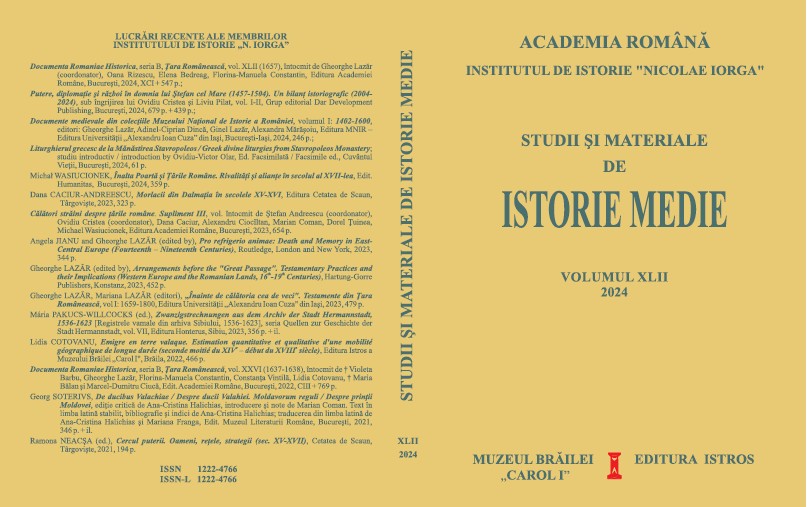Politica fiscală a domnilor fanarioți față de așezămintele religioase. Studiu de caz: mănăstirile Cotroceni, Radu Vodă și Mihai Vodă
The Fiscal Policy of the Phanariot Rulers towards Religious Houses. Case Study: the Monasteries of Cotroceni, Radu Vodă and Mihai Vodă
Author(s): Mariana LazărSubject(s): History, Cultural history, Economic history, Social history, Middle Ages, Modern Age, 17th Century, 18th Century, 19th Century
Published by: Institutul de Istorie Nicolae Iorga
Keywords: Walachia; Phanariot rulers; Romanian monasteries; taxes; fiscal policy;
Summary/Abstract: The history of medieval Romanian taxation was a complex one, not yet enough understood. In what the monasteries are concerned, whereas they initially benefited from tax immunity, over time certain contributions began being imposed on them. After 1720, in direct relation to the growing financial needs of the Phanariot rulers, the taxes imposed on the monasteries were both diversified and increased. The documents regarding the budgets of the monasteries Cotroceni, Radu Vodă and Mihai Vodă contain detailed information about the taxes personal, real and extraordinary that were paid not only by these monasteries, but also by all other similar institutions between 1730 and 1740. Thus, taxes that had previously been only exceptional, became annual taxes under the Phanariot reigns, some being even collected twice in a year, whenever there was a change of ruler or when the demands of the Turks became pressing.The quantum of these taxes paid by the monasteries to the country’s treasury demonstrates the excessive taxation of that era. The serious consequences on their situation determine Prince Constantin Mavrocordat to give them exception from the taxes (1741). Later, due to increased financial needs, the successors of Constantin Mavrocordat reimposed the monasteries to pay the taxes. In 1775, Prince Alexandru Ipsilanti exempted the monasteries from paying taxes, instead asking them to pay a contribution proportional with their wealth in order to finance the schools. Although the monasteries were exempt from paying taxes by a number of princely charters, nevertheless at later dates they were asked to contribute towards the wellbeing of the country, whenever the need required it.
Journal: Studii şi Materiale de Istorie Medie (SMIM)
- Issue Year: XLII/2024
- Issue No: XLII
- Page Range: 239-254
- Page Count: 16
- Language: Romanian
- Content File-PDF

